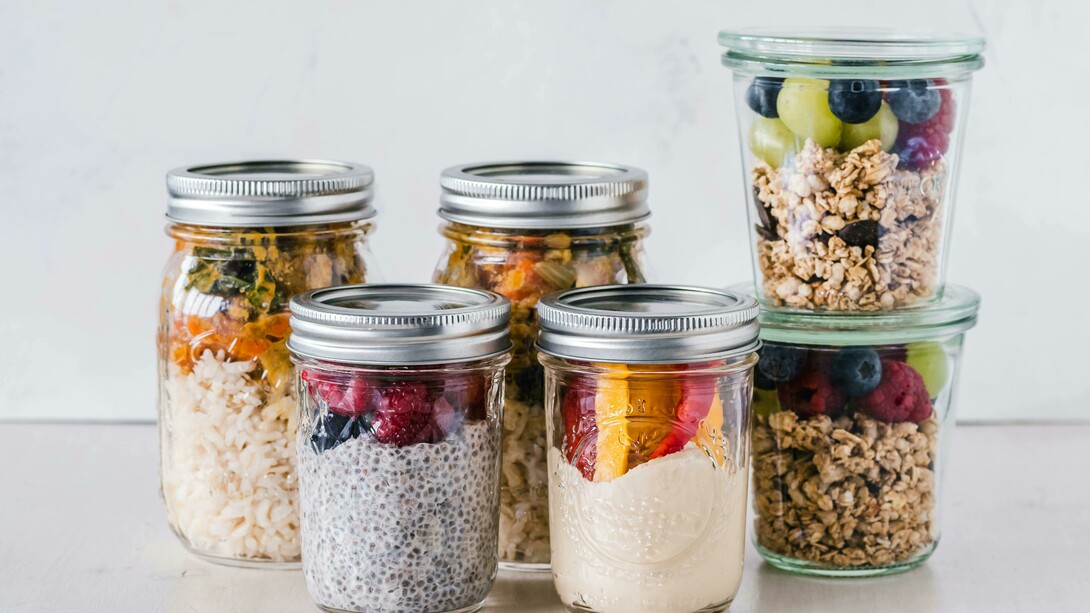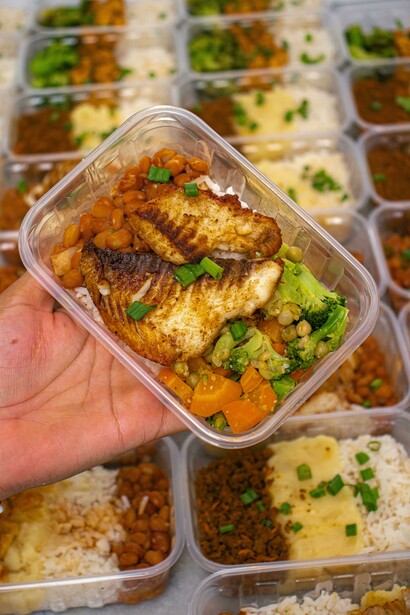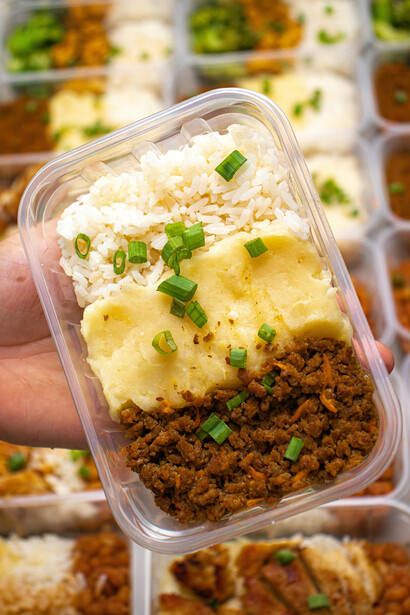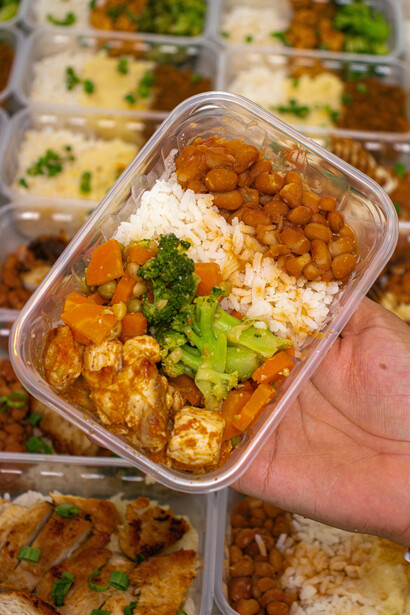Busy work schedules, family responsibilities, endless to-do lists… In today’s fast-paced life, maintaining healthy eating habits often feels impossible. Yet what we eat directly impacts our energy, focus, immune system, and overall quality of life. So how do we make healthy eating simple and sustainable? The answer is meal prep—planning and preparing meals in advance. Whether done at home or with the help of a professional chef, meal prep is a lifestyle solution that saves time, reduces stress, and ensures that nutritious meals are always within reach.
Why healthy eating matters
Eating healthy is about much more than weight management. It fuels your body and mind. Consistent, balanced meals can:
Boost energy throughout the day.
Improve concentration and productivity.
Strengthen the immune system.
Support long-term health and prevent disease.
But keeping up with these habits daily can be tough. Meal prep bridges that gap, ensuring that every meal is balanced, nutrient-rich, and customized to your needs—without the chaos of last-minute cooking.
What is meal prep and why is it so popular?
Meal prep means preparing meals ahead of time, portioning them, and storing them in the fridge or freezer. It eliminates the stress of “What’s for dinner?” and prevents unhealthy last-minute takeout choices.
Quick and ready meals on busy days.
Control over ingredients and nutrition.
Reduced food waste and better time management.
The benefits of homemade meals
Homemade meal prep is powerful because it puts you in control. You can adjust flavors, portion sizes, and nutritional values. You know exactly what’s in your food—unlike processed, packaged meals full of preservatives. Homemade also means sustainability: less packaging, fewer additives, and reduced waste. With planned portions, you cook only what you need, while freezing leftovers keeps meals fresh for later.
Practical tips to get started
Not sure where to begin? Here are some easy, realistic tips:
Start small: prep just 2–3 meals a week instead of diving into a full weekly plan.
Choose versatile ingredients: use the same ingredient in different meals. Example: Cooked chickpeas → salad on Monday, hummus on Tuesday, stew on Wednesday.
Eat the rainbow: add colorful vegetables and fruits to maximize nutrients. Example: Carrots (orange), broccoli (green), beets (purple), and quinoa (white).
Use your freezer: batch-cook soups, meatballs, or veggie patties to freeze in portions.
Pick weekly themes: make it fun! Mediterranean week: olive oil dishes, fish, fresh salads. Asian Week: stir-fries, noodles, and teriyaki chicken.
Don’t forget snacks: prepping healthy snacks prevents junk-food choices. Roasted chickpeas, yogurt and fruit cups, veggie sticks and hummus, etc.
Sample meal prep plan
Here’s a simple three-day lunch prep idea
Monday: Grilled chicken + quinoa salad + roasted vegetables.
Tuesday: Olive oil chickpeas + arugula salad + whole-grain wrap.
Wednesday: Baked salmon + bulgur pilaf + steamed broccoli.
Freezer-friendly ideas:
Lentil soup.
Turkey meatballs.
Veggie patties (great for kids!).
Portion-sized vegetable lasagna.
Snack prep ideas:
Yogurt cups with seasonal fruit.
Homemade granola bars.
Oven-baked apple chips.
Carrot & cucumber sticks with hummus.
Time-saving benefits
One of the most valuable outcomes of meal prep is the time you save. Instead of cooking every day, you spend just a few hours per week preparing meals in advance. The result? More free time for work, family, or self-care—without sacrificing nutrition.
Working with a professional chef
While meal prep can be done by anyone, working with a private chef takes it to another level. A chef can design personalized menus tailored to your lifestyle—whether vegan, gluten-free, protein-focused, or kid-friendly—while also introducing variety to keep flavors exciting. Beyond the meals themselves, chefs can teach cooking techniques that you can use long-term, giving you skills that last well beyond a single week of prep. This isn’t just about convenience; it’s about building a sustainable and enjoyable approach to eating well.
Psychological & emotional benefits
Healthy meal prep doesn’t just nourish the body; it supports the mind. Pre-prepared meals reduce stress, eliminate decision fatigue, and prevent impulsive junk-food choices. Balanced eating also stabilizes mood, boosts motivation, and increases productivity.
And when meals look colorful and appetizing, eating becomes a joy rather than a chore—making it easier to stick with healthy habits.
Sustainability: a bigger picture
Meal prep is also eco-friendly, helping to cut down on food waste through planned portions, reducing packaging compared to takeout or processed meals, and lowering your carbon footprint with thoughtful grocery shopping. By planning ahead, you’re making choices that benefit not only yourself but also the planet.
Final thoughts
Homemade meal prep is more than a trend—it’s a lifestyle upgrade. It saves time, reduces stress, supports health, and adds joy back into eating. Whether you prepare your meals yourself or collaborate with a private chef, the result is the same: a healthier, easier, and more sustainable way of living.
With a little planning and creativity, you can transform both your plate and your life. Think of it as an investment not only in your health but also in your future. Every balanced meal you prepare is a step toward stronger energy, greater focus, and long-term well-being. It’s also a commitment to reducing waste, supporting the planet, and showing care for yourself and those you cook for.
Meal prep is not about perfection—it’s about consistency. Even small efforts, like preparing two or three meals ahead, can spark big changes over time. And as the habit grows, so will the benefits: more peace of mind, better nutrition, and the freedom to enjoy life without constantly worrying about food choices.
In the end, meal prep is about reclaiming control—over your time, your health, and your lifestyle. It empowers you to live with intention, proving that eating well doesn’t have to be complicated. By starting today, you’re choosing a path that nourishes both body and mind, turning everyday meals into a foundation for a healthier, happier life.















